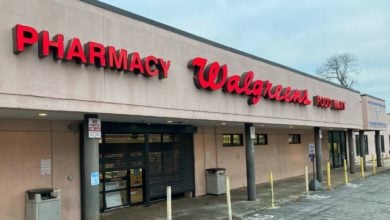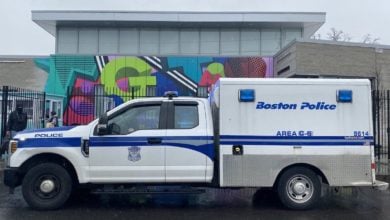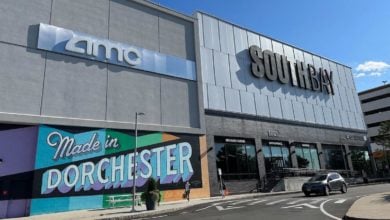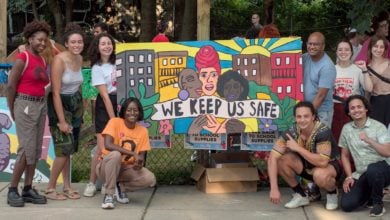On Sept. 28, hundreds of people marched against Operation Clean Sweep, the city of Boston’s program of heightened arrests and harassment of Boston’s homeless and drug-using communities.
On Aug. 1, after an altercation between a local correctional officer and several people experiencing homelessness outside the Southampton shelter on Atkinson Street, the Boston Police initiated Operation Clean Sweep. On that first day, at least 33 people were arrested and some were arraigned on outstanding warrants. At least one person was reportedly arrested while passed out on the street that day.
Steel barricades continue to section off parts of Atkinson Street in Boston’s South End, creating a militarized backdrop for the brutal and sustained mass eviction. Where people who use drugs once gathered to find community, there is now constant police surveillance, petty harassment, and forced displacement. The assault has hit the drug-using community and the homeless community hard.
“I was tackled and searched for drugs, and all they found was one pill that I had a prescription for,” stated Ralph McCaffery, president of the Boston Users Union, the group that organized the rally. “I slept outside for four years before I got housing. In that time I’ve saved 110 people with Narcan.” Narcan is an inhalant that, when given to someone who has overdosed, restores their consciousness and reverses the effects of the overdose.
The march and rally was a resounding rebuke of the stigma attached to drug use. While opposing the use of armed force and repression, demonstrators called for more harm reduction services, science-backed treatment services on demand and safe injection sites.
Angela, a harm reduction organizer and member of the Party for Socialism and Liberation stirred the crowd, urging: “We must make science-backed treatment available for free and on demand. Capitalist profiteering has created a 35 billion dollar industry out of the same methods one could get in a church basement, and despite the dominant discourse, we must acknowledge that prayer, confession, restitution, evangelization, and abstinence is not the right answer for every person who uses drugs, and that other methods should be funded, researched, and made readily available.
“But beyond all these things, we must recognize that where there is poverty, where there is systemic injustice, patriarchal violence, racism, homophobia, transphobia, colonialism, and endless war at the expense of those abroad and at home, there will be trauma and problematic relationships to substances. If we want change, real meaningful change, our goals must be no shorter than complete societal shift, with the caveat of ‘Preserve life by any means necessary’ in the immediate. Opioids and overdoses are the symptom, the epidemic is far greater.”






